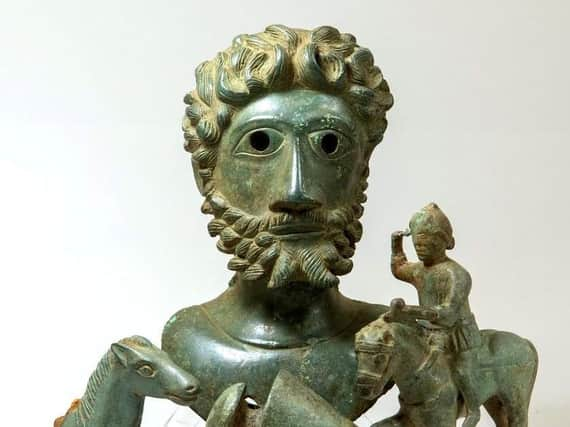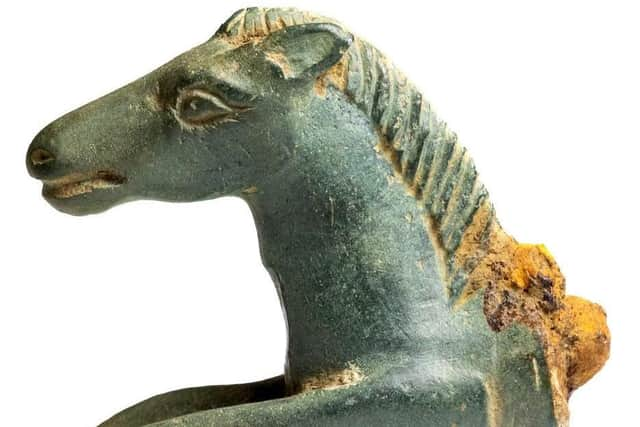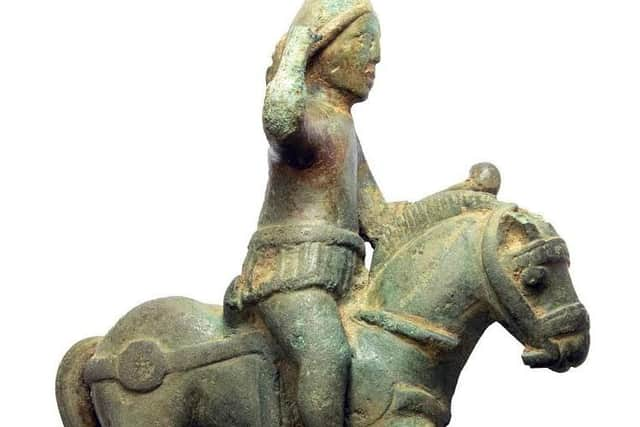Incredible hoard of Roman treasures discovered by amateur metal detectorists in Ryedale to be auctioned


Amateur metal detectorists James Spark 40, and Mark Didlick, 44, found the 2,000-year-old collection, which is believed to have been buried as part of a Roman religious ceremony in AD160.
The artefacts include a bust of Emperor Marcus Aurelius, who was a character in the film Gladiator.
Advertisement
Hide AdAdvertisement
Hide AdThe entire hoard has been valued at £90,000 and will go under the hammer next month at a London auction house.


It has been named the Ryedale Rital Bronzes, and also includes a statue of the god Mars, a knife handle in the shape of a horse's head and a large bronze pendulum.
The relics will be available to view by appointment only at the Hansons Auctioneers showroom from Friday ahead of the sale on May 20.
Mr Spark and Mr Didlick reported their finds officially by handing them to York Museums Trust, and they were then declared treasure at a coronial inquest and passed to the government's Portable Antiquities Scheme for recording.
Advertisement
Hide AdAdvertisement
Hide AdHansons expert Adam Staples said: “The hoard of artefacts was probably buried as a religious offering which marked the closure of a rural shrine or the death of a priest.


"The artefacts would have formed a suite of ritual implements, to be utilised when performing religious ceremonies and for predicting the future."
Marcus Aurelius became Emperor in March of AD161 and his 19-year reign was one of relative peace and prosperity for Rome.
However, in AD165 troops returning from Mesopotamia brought with them a virus which swept across the entire Empire - the Antonine Plague.
Advertisement
Hide AdAdvertisement
Hide AdNow believed to be an outbreak of smallpox, this ancient pandemic devastated the Roman population, with an estimated 10 per cent of the population succumbing to it.
Mr Staples added: “He (the bust) is very lucky not to have been broken by his 1,850 years spent underground. The bust has survived extremely well and is in very fine condition with a glossy green patina.
"This is a very rare opportunity to own a nationally important group of artefacts.”
Viewings will also be available in York on May 11. To book email [email protected].